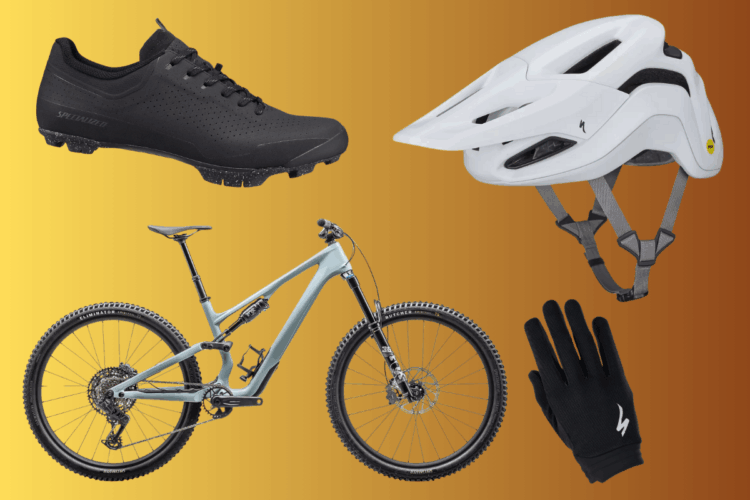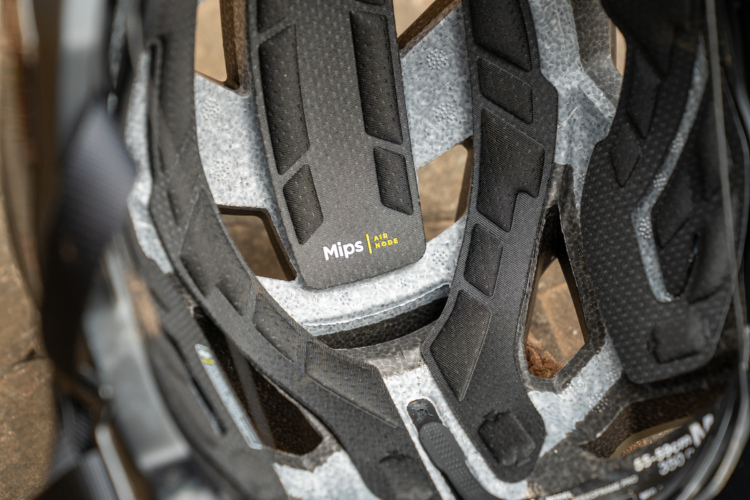
It feels good to go fast. It feels even better to win (hell, just be honest with yourself). To get there, some people are willing to try almost anything–EPO, steroids, HGH–pick your poison. The majority of us take a more “healthy” approach to reap personal fitness and performance gains. We do things like… diet. But, define “healthy?” Going Paleo? Omitting carbohydrates to force-produce ketones? And what about this “gluten-free” fad everyone has been obsessing over? Sorry to burst your bubble, that latter thing–being anti-gluten–it won’t make you ride faster (and neither will the others).
I recently published a comprehensive article reviewing the prevalence of celiac disease vs. the religious-like public movement revolving around non-celiac gluten sensitivity/gluten intolerance. What did I find? Unless you have a clinical diagnosis that clearly defines why you can’t eat barley, rye, or wheat-containing foods, you’re pretty much wasting your money.
Gluten-free products are marked up (on average) a whopping 300%. But, we all have those friends that will try and believe anything when it comes to diet and performance. Do you want to know how much quality, peer-reviewed, biologically-based research supports the idea that going “gluten-free” will make you ride faster? Zero.

Just drink the beer and eat the bread.
Considering the lack of supportive evidence, “gluten-free” is the trendy thing to do, at least at the moment. Give it a few years… people will stop being possessed by its empty promises. Books like Wheat Belly and Grain Brain only make the problem worse, not better. Dr. Alan Levinovitz of James Madison University, Harrisonburg, VA, has written several pieces (and a book) divulging the causes and effects of junk science, superstitions, and fix-it-all elimination diets in relation to how many people begin taking their ride on the BS bandwagon:
“Paradise past. Good and evil. Benevolent Nature with a capital N. The promise of nutritional salvation. After you’ve constructed a compellingly simple narrative foundation, all you have to do is wrap your chosen diet in scientific rhetoric.”
And, voila… a brand spanking new way to a new you!
In reality, it mostly boils down to the brain. The mind is a powerful tool, one that heavily influences the body. The gut has it’s own nervous system (called the enteric nervous system). It operates on its own, connected to the brain through the central nervous system. From this, we can derive a concept called the “brain-gut axis;” the mind and the gut influence each other. You’ve probably heard of this referred to as the “mind-body connection.”
Simply put, that pesky indigestion that rears its head during stress, or the lack of appetite during depression–all of this exemplifies the brain-gut axis. Furthermore, did you know that 80% of your body’s serotonin (the feel-good neurotransmitter that regulates mood) is made in the gut? With food, this simple concept supports the fear-fueled idea that, “It must be this normal, healthy food-thing that is killing me.”
In reality, it comes down to feeling what you believe–most of the time, a placebo effect. According to a few studies conducted by Dr. Jessica R Biesiekierski and her team (to include a double-blind randomized placebo-controlled trial–the “gold standard” in research design), non-celiac gluten sensitivity has no identifiable biological mechanism. Her team also found no effects of gluten on individuals when troublesome IBS-related foods (FODMAPs) were removed. In fact, the placebo effect of removing gluten (as the topic, here), may be so strong, that some scientists conclude that non-celiac gluten intolerance may actually not even exist!

But… but… what about performance?
First: elimination diets that have no serious underlying medical reason are not exactly a good thing. Evidence shows an increased risk for developing an eating disorder and/or malnutrition from lack of essential nutrients contained in the “problem” food. And, since gluten proteins are found in some staple carbohydrates, all y’all that ride a lot are risking proper fueling for training and performance, as well as replenishing spent carbohydrate stores during recovery. To an extent, you can’t reinvent the wheel.
Being “glutenless” won’t improve your performance on the bike. In 2015, PhD candidate Dana Lis and Dr. Trent Stellingwerff, Director of Innovation & Research at the Canadian Sport Institute Pacific, Victoria, BC, conducted a double-blind, randomized, crossover study analyzing the effects of a short-term gluten-free diet on the time trial performance of 13, non-celiac competitive cyclists. No significant improvements in performance were found when gluten was eliminated, determined by changes in biomarkers indicative of intestinal injury and inflammation, as well as perceived gastrointestinal irritability.
The same research team also analyzed 910 athletes (including 18 World and Olympic medalists). A whopping 41% of the surveyed athletes adhered to a gluten-free diet at least 50% of the time (so… gluten is only bothersome sometimes?). In addition, of these athletes, the majority of them chose to eliminate gluten based on a self-diagnosis–without a clinically rational reason.
So why did the athletes do it? The belief that removing gluten would benefit them, similar to any other ergogenic aid. Some popular supplements are very beneficial, and science supports it. But others… not so much, even detrimental. Examples: taking NSAIDs or antioxidants. (In fact, antioxidants hamper physiological adaptations to training. Have some fun and read this article I wrote on aspirin and performance.)
The keyword here is belief.
The mind is strong. Sports psychology proves this all the time: if you repeatedly tell yourself “I can,” you do better. If you use beneficial, calming imagery, you do better. If you think positively, you do better.
Things that will make you faster: riding your bike 🙂

References:
Biesiekierski, J. R., Newnham, E. D., Irving, P. M., Barrett, J. S., Haines, M., Doecke, J. D., … & Gibson, P. R. (2011). Gluten causes gastrointestinal symptoms in subjects without celiac disease: a double-blind randomized placebo-controlled trial. The American journal of gastroenterology, 106(3), 508-514.
Biesiekierski, J. R., Peters, S. L., Newnham, E. D., Rosella, O., Muir, J. G., & Gibson, P. R. (2013). No effects of gluten in patients with self-reported non-celiac gluten sensitivity after dietary reduction of fermentable, poorly absorbed, short-chain carbohydrates. Gastroenterology, 145(2), 320-328.
Herbold, J. L. (2016, August 5). Is aspirin an ergogenic aid? truPhys.com. Retrieved from https://truphys.com/aspirin-ergogenic-aid/
Herbold, J. L. (2016, May 6). Gluten sensitivity… are you for real?! truPhys.com Retrieved from https://truphys.com/gluten-sensitivity-are-you-for-real/
Levinovitz, A. (2015, June 11). How ‘diet gurus’ hook us with religion veiled in science. Retrieved from http://www.npr.org/sections/thesalt/2015/06/11/412973926/how-diet-gurus-hook-us-with-religion-veiled-in-science
Lis, D., Stellingwerff, T., Kitic, C. M., Ahuja, K. D., & Fell, J. (2015). No effects of a short-term gluten-free diet on performance in nonceliac athletes. Med Sci Sports Exerc, 47(12), 2563-70.
Lis, D. M., Stellingwerff, T., Shing, C. M., Ahuja, K. D., & Fell, J. W. (2015). Exploring the popularity, experiences, and beliefs surrounding gluten-free diets in nonceliac athletes. International journal of sport nutrition and exercise metabolism, 25(1), 37-45.
Pomeroy, R. (2014, May 14). Non-celiac gluten sensitivity may not exist. Retrieved from http://www.realclearscience.com/blog/2014/05/gluten_sensitivity_may_not_exist.html
Reynolds, G. (2016, January 20). When athletes go gluten free. The new york times. Retrieved from http://well.blogs.nytimes.com/2016/01/20/when-athletes-go-gluten-free/?_r=0
Shilton, A. C. (2015, May 20). Gluten-free diet may not boost athletic performance. Runner’s world. Retrieved from http://www.runnersworld.com/nutrition/gluten-free-diet-may-not-boost-athletic-performance











5 Comments
Feb 20, 2017
Seek a natural diet with varied grains making up for a small amount of your diet, root vegetables and small game are what we evolved to eat.
Also depression and mindset: There are clinical studies that now show a different understanding, your mind, stomach and immune system are very much linked, and depression can now be linked directly to our stomach and body in general needing to slow down and recover, this is where non reactionary depression takes over. When your depressed, you want to just sleep the days away, lethargy is an understatement, your body puts you in hold, literally.This is why your stomach has such a strong control over the mind.
And again can be linked to using medications to solve effects while ignoring root causes, and our increasingly poor immune systems.
Good diet and exercise build a stronger body, but you have to fuel that body well and not mask ill effects.
Ever wonder why animals know what to eat and not eat instinctively to recover, we have this same ability, but modern food products mislead the mind, causing cravings for things we dont need instead of what will ultimately help.
Craving bread and sugar all the time, thats Candida.
Take some time to re-train your body.
Sugar cravings, eat berries or freshly squeezed juices.
Sandwiches and bread, try nuts and the root veg instead.
Theres a reason the med diet is so good for you, its because it includes many of the things that are simply non existent in modern diets and fits in with all the above. Yes they eat bread, but they don't have so much of an issue with overgrowth due to the many seeds, nuts and oils and smaller amounts of meat as a protein source. They have a healthy immune system and stomach.
Jul 29, 2018
Feb 20, 2017
Feb 20, 2017
Ever wonder why rural Africans are often very happy despite some horrendous circumstances.
They did tests of the gut flora of African tribal people and found they have a vastly more complex gut flora than westerners.
They are also able to drink milk fresh from the goats and cattle and not become ill, and it is encouraged in young children. in fact it is a source of great strength. And the theory in my mind is that this greatly lessens the need for depression.
(I have family from Sudan and they are truly happier and healthier than anyone else I know).
Feb 20, 2017
Tribal people have bigger woes than what kind of milk they're supposed to drink. That's why they are content when they have something to eat, and contentment equates to happiness. But us in the west is far from being content in what we have, or where we are in life.